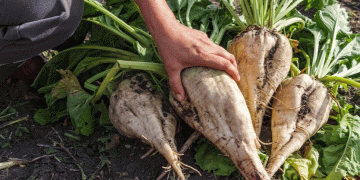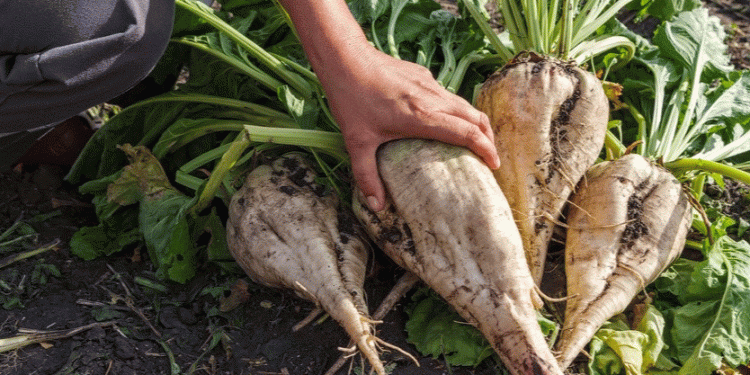Spring frosts have delivered a severe blow to Russian agriculture, with sugar beet and fruit crops suffering significant losses. According to the Russian Union of Sugar Producers, 120,000 hectares of sugar beet (12% of total plantings) have been destroyed, particularly in the Belgorod, Lipetsk, and Kursk regions. While reseeding efforts are underway, industry leaders assure that a sugar shortage is unlikely (Izvestia).
Fruit Production Under Threat
The southern regions, including Stavropol Krai, Krasnodar Krai, and Crimea, report 15–40% losses in apricots, cherries, peaches, and plums. In some areas, up to half of the stone fruit harvest could be lost. Farmers describe the situation as critical, with potatoes and other early-season crops also affected.
Farmers Fight Back – But Can They Win?
The Ministry of Agriculture had issued early frost warnings, prompting farmers to deploy smoke screens, irrigation, and protective chemicals. However, these measures were only partially effective. Oksana Lut, head of the Ministry of Agriculture, confirmed that the first frost wave hit southern orchards hardest, while the second affected the Volga region.
A Silver Lining?
Experts note that this year’s frosts were less destructive than in 2023, as temperature drops occurred earlier in the growth cycle. Winter grains remain largely unharmed, but sugar beet reseeding and a 10–15% decline in fruit yields are expected. Insurance companies report no major financial losses yet, but early-flowering trees and vineyards remain vulnerable.
Climate Resilience is Key
With Russia’s agriculture increasingly vulnerable to extreme weather, adaptive strategies—such as frost-resistant crop varieties, improved forecasting, and precision farming—are essential. While this year’s losses are manageable, the trend highlights the urgent need for long-term solutions in risk-prone farming zones.































